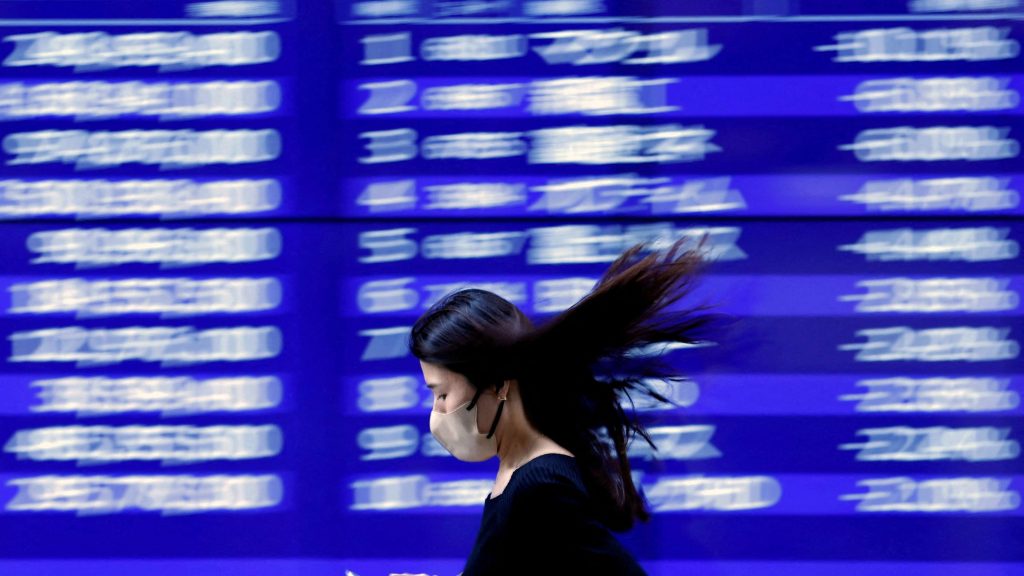
European stock indexes hit new highs on Wednesday as markets anticipated crucial U.S. inflation data which could give signals on how soon the Federal Reserve will end its aggressive rate hikes.
After Friday’s jobs report showed a resilient U.S. labour market, emboldening bets of a 25 basis point hike at the Fed’s next meeting in May, investor attention is firmly on the March inflation report due later in the day.
The consumer price index is expected to show core inflation, which excludes volatile food and energy prices, at 0.4% on a monthly basis and 5.6% year-over-year in March, according to a Reuters poll, which would mark a rise from February’s 5.5% in a headache for the Fed.
Markets were in wait-and-see mode ahead of the data, but small gains pushed Europe’s blue-chip STOXX 50 index to its highest since 2001. It was up 0.2% on the day by 1054 GMT while France’s CAC index rose also touched a new record high.
In broader indexes the pan-European STOXX 600 index was up 0.2% after touching its highest since March 7, right before the collapse of U.S. lender Silicon Valley Bank rattled financial markets. Britain’s FTSE touched the highest since March 10 and was last up 0.6%. The U.S. S&P 500 index was set to open higher.
Government bond yields were also little moved with benchmark U.S. 10-year Treasury yields up just 2 basis points to 3.45%
“The inflation data for March constitutes a glance into the rear-view mirror to the times prior to the turbulence on the U.S. banking market which turned projections upside down,” said Esther Reichelt, FX analyst at Commerzbank.
Reichelt said the data was unlikely to affect market bets on rate cuts to counter a tightening of financing conditions resulting from the banking turmoil. The cuts are at odds with the Fed’s own projections.
“We do not assume that the discrepancy between Fed and market expectations will end today or in the near future,” Reichelt said.
Money markets are now pricing in a 73% chance of the Fed raising interest rates by 25 basis points in May then pausing, up from around 50% before Friday’s jobs report, then 40 bps of cuts by year-end.
Overnight, Philadelphia Federal Reserve Bank President Patrick Harker said he feels the U.S. central bank may soon be done raising interest rates, but reiterated the desire to bring inflation back to its 2% target.
The Fed last month raised interest rates by a quarter of a percentage point, taking it to a range of 4.75% to 5.00%.
“I’m in the camp of getting up above 5 and then sitting there for a while,” Harker said.
Minutes of the Fed’s March meeting are also due to be released later in the day and investors will parse it for clues on the monetary path of the central bank, as well as the impact of the stress in the banking sector.
The International Monetary Fund warned on Tuesday that lurking financial system vulnerabilities could erupt into a new crisis and slam global growth this year as it lowered its 2023 global growth forecasts.
While markets expect rates to be moving lower, the cut in oil production announced by the OPEC+ group last week has also fanned fears of inflation flaring up, and for investors to really lower their concerns over inflation there will have to be a clear fall in prices for services, Saxo Markets strategists said.
Brent crude was at $85.66, up 0.1% on the day and has risen some 7% since the OPEC+ decision. [O/R]
“There’s going to be some kind of readjustments by the market and inflation will be the key of course, because inflation and how quickly that falls will dictate how quickly we can move into rate cuts and we think that it may be slower moving than people are expecting,” said Jorge Garayo, senior rates and inflation strategist at Societe Generale.
In focus was also China, which said on Wednesday that President Tsai Ing-wen was pushing Taiwan into “stormy seas” after Beijing held military exercises in response to Tsai’s recent meeting with U.S. House Speaker Kevin McCarthy in California, which Tsai said showed Taiwan’s determination to defend freedom and democracy.
China shares were mixed, with the Shanghai Composite Index up 0.4% while Hong Kong’s Hang Seng Index sank 0.9% as investors weighed rising geopolitical tensions. MSCI’s broadest index of Asia-Pacific shares outside Japan was 0.2% lower.
In the currency market, the dollar index, which measures the U.S. currency against six rivals, was last flat.
The euro was up 0.1% at $1.09240, while sterling was last trading at $1.24105, down 0.2% on the day.
The yen was last flat at 133.74 per dollar after weakening earlier in the session. The IMF said the Bank of Japan could help prevent abrupt policy changes later by allowing more flexibility in its bond yield curve control.
Spot gold was up 0.3% to $2007.94 an ounce. [GOL/]
(Reuters)
Inside Telecom provides you with an extensive list of content covering all aspects of the Tech industry. Keep an eye on our News section to stay informed and updated with our daily articles.